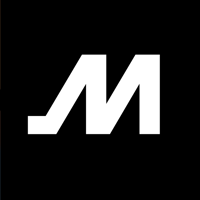In the healthcare sector, the Health Insurance Portability and Accountability Act of 1996 (HIPAA) requires that all insurance payers exchange transactions such as claims, eligibility checks, prior authorizations, and remittances using a standardized EDI format called X12 HIPAA. A small group of legacy clearinghouses process the majority of these transactions, offering consolidated connectivity to carriers and providers.
Stedi is building the world’s only API-first clearinghouse. By offering modern API interfaces alongside traditional real-time and batch EDI processes, we enable both healthcare technology businesses and established players to exchange mission-critical transactions. Our clearinghouse product and customer-first approach have set us apart. Stedi was ranked the #3 fastest-growing SaaS vendor in Ramp’s April 2025 report.
Stedi has lightning in a bottle: engineers and designers shipping products week in and week out; a lean business team supporting the company’s infrastructure; passion for automation and eliminating toil; $92 million in funding from top investors like Stripe, Addition, USV, Bloomberg Beta, First Round Capital, and more.
What is Support Engineering at Stedi?Stedi is a healthcare clearinghouse for developers. We’re a tech-driven company. We pore over our infrastructure and ship features constantly. But when we ask customers why they chose us – what we do better than anyone else – they always say the same thing:
Support.
It's what we're known for – not because we perfected support best practices, but because we ignored them. The idea is simple: eliminate customer pain so quickly and thoroughly that it's shocking. Do this right, and it becomes another part of Stedi’s differentiation from other clearinghouses.
The Support Engineering team is responsible for that. It’s a group of high-performing individuals across product operations, solutions engineering, analytics, sales engineering, support engineering, account management, and more - all with permission to solve problems on behalf of customers, fast.
We wrote more about this on our blog here.
What we’re looking forWe are hiring a Head of Support Engineering who isn’t afraid to do the job before scaling the team.
We are looking for someone who will learn every inch and corner of the product. Someone who cares as much about our smallest customers as our biggest; our quietest and our loudest. Someone who sweats the details, can never have enough context, and believes there is no task beneath them. Someone who will be the first into the fire, and the last one out - with a root cause analysis in tow.
This role isn’t made for your typical Head of Customer Success or Support - the work moves extraordinarily fast, the problems are complex and technical, and the decisions you make will have real impact across our customers, products, and business.
Who you areYou have a technical product mindset. You go beyond helping customers with the task at hand. You are able to intuitively identify product gaps based on customer feedback, and are able to articulate those to product and engineering teams. You are familiar with developer-first products (working with APIs, JSON, LLMs, etc).
You move fast. We move fast as an organization. Our median response time to customers during business hours is 8 minutes - which we think is slow. This requires an ability to match our pace and not get lost when responding with urgency (both externally to customers and internally to stakeholders).
You have customer-facing experience: You have worked directly with customers; ideally within support engineering, product operations, sales engineering, consulting, or adjacent roles.
You are exceptional at staying on top of many open threads simultaneously. You are hyper-responsive, organized, and thorough. You instinctively document decisions and processes to avoid repeat problems. You know when to zoom in to the details or zoom out to reprioritize. You never drop balls.
You do what it takes to get the job done. You are resourceful, self-motivating, self-disciplined, receptive to feedback, and don’t wait to be told what to do. You put in the hours.
You have deep customer empathy. You can quickly understand a customer’s needs while also having the ability to get into the weeds on technical areas of a product to ensure they’re getting the most value. You keep customers at the center of your work and always prioritize customer relationships.
You are a leader. You know what it takes to hire and develop the best. You know that the strongest leaders are also high-performing individual contributors. You are not afraid to do the work and lead by example.
Take on responsibility for the people, priorities, and performance of the Support Engineering function.
Be directly responsible for the technical success of all customers, from those in a proof-of-concept period through production.
Build out the systems and processes to ensure customers are being onboarded successfully and as quickly as possible.
Be the primary owner of all major incidents, outages, and escalations.
Identify product gaps and signals from customers and relay those as well-documented issues to product and engineering teams for review and implementation. Ensure the loop is closed with customers.
Contribute to external documentation and internal runbooks to ensure we are building up a knowledge base of frequently asked questions with the goal of enabling self-service customer adoption.
Build tooling and systems to scale the systems and team.
At Stedi, we're looking for people who are deeply curious and aligned to our ways of working. You're encouraged to apply even if your experience doesn't perfectly match the job description.
Top Skills
Similar Jobs
What you need to know about the Los Angeles Tech Scene
Key Facts About Los Angeles Tech
- Number of Tech Workers: 375,800; 5.5% of overall workforce (2024 CompTIA survey)
- Major Tech Employers: Snap, Netflix, SpaceX, Disney, Google
- Key Industries: Artificial intelligence, adtech, media, software, game development
- Funding Landscape: $11.6 billion in venture capital funding in 2024 (Pitchbook)
- Notable Investors: Strong Ventures, Fifth Wall, Upfront Ventures, Mucker Capital, Kittyhawk Ventures
- Research Centers and Universities: California Institute of Technology, UCLA, University of Southern California, UC Irvine, Pepperdine, California Institute for Immunology and Immunotherapy, Center for Quantum Science and Engineering



